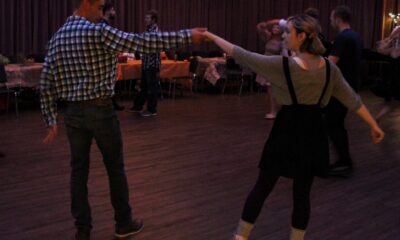While the entire rally in Paris following the shooting at Charlie Hebdo was inspiring, the image of world leaders linking arms in solidarity and support of free speech really was the icing on the cake.
Among the many countries present, Israel, Saudi Arabia, Turkey, and Egypt were represented, all catalysts of free speech, except for the occasional flogging and imprisonment of journalists.
It was a shining example that free speech is not always free and hypocrisy runs rampant.
Charlie Hebdo has been portrayed as a sort of martyr; the leading example of free speech that has tried to be silenced, but fights on.
I would say this perception is just a bit off. Charlie is more of a leading example of vulgar, racist, and offensive published material that refuses to stop, even when it surpasses common sense.
It takes a deeper realization of French culture to better understand the situation. France has a history deeply rooted in racism and prejudice against Jewish and immigrants, especially those from Morocco, Algeria, and neighboring north African countries.
The Muslim people in France are already greatly alienated in their country. Islamophobia was already on the rise in France and this entire situation has only inflamed it. Right-wing extremist governments are taking hold in Europe and they don’t even try to hide their agenda. One such party is named the Islamophobic Party for Freedom and is gaining power in France. Some think that Marine Le Pen, leader of the party, is set to be France’s new president.
France likes to call itself a great leader of freedom of speech and expression, but just this last year, banned the wearing of headscarves, a common head-wear of Muslim women. It seems as though free expression is allowed in France when it agrees with their policies.
Now, throw Charlie Hebdo in this whole equation and it’s difficult not to question the magazine’s complete lack of foresight.
In 2012, Charlie published an entire page full of nude caricatures of Muhammad, the prophet of Muslims. It is already considered blasphemous to many Muslims to depict Muhammad, but to depict him in such a lewd and pornographic manner was a step too far.
The French president asked Charlie not to publish the cartoon out of fear for public safety. Charlie refused and France ordered the closure of schools, embassies, and cultural centers.
Even the White House condemned the cartoons and questioned Charlie’s judgment for going ahead with the publishing.
France’s Foreign Minister Laurent Fabius criticized the magazine asking, “Is is pertinent, intelligent, in this context to pour oil on the fire? The answer is no.”
Charlie defended itself, saying that it wasn’t Islamophobic or racist and that it was only trying to poke fun at extremist Muslims.
You have the right to make fun of the Muslim religion. You have the right to put the most foul, disgusting things on the front page of a nationally distributed magazine, if you so wish. But besides inflaming extremists of the Muslim religion, whom will most likely do something violent in retribution, what will this accomplish?
In an amusing twist following the attack, despite the “free speech” ideology of the U.S., many American newspapers decided not to publish samples of Charlie Hebdo’s glorious works of art.
Accused of cowardice, executive editor Martin Baron of the Washington Post defended the newspaper’s decision saying that the paper doesn’t publish material “that is pointedly, deliberately, or needlessly offensive to members of religious groups.”
New York Times executive editor Baquet explained the paper’s decision not to publish the cartoons:
“We have a standard that is long held and that serves us well: that there is a line between gratuitous insult and satire. Most of these are gratuitous insult.”
I applaud their decision; it shows a deeper understanding than the editors who worked at Charlie Hebdo.
Indeed, out off all the platforms of free speech to stand on, does it really have to be a magazine that repeatedly crossed into the territory of bigotry? Is that the kind of free speech we have decided to support?
Satire is not supposed to be simply insulting, its supposed to make a point; bring a message
Extremists are not going to laugh or understand the cartoons. They’re not going to drop their weapons and have change of heart. They will, however, get angry and attack.
Everyone else knows and understands that extremists are too deep in their beliefs, so what change does publishing obscene caricatures bring, besides violence?
The Washington Post editor really hit the nail on the head with his “pointedly, deliberately, or needlessly offensive” remark. Charlie’s satirical caricatures fit the bill for all three of those descriptions.
It brings to mind the expression: “It doesn’t mean that we can that we should.”
If everyone knows there’s a monster lurking in the corner, why would you go up and jab at it? It doesn’t achieve anything.
I do not support the actions of the Algerian brothers and accomplices who murdered 10 editors and staff members of Charlie Hebdo and two police officers who came to their aid. I in fact despair at what they have done. But I cannot find Charlie Hebdo without fault either.
Many supporters of free speech rallied around the magazine after the shooting crying out “Je Suis Charlie”, but in this case, I find that I must say “Je Ne Suis Pas Charlie.”













